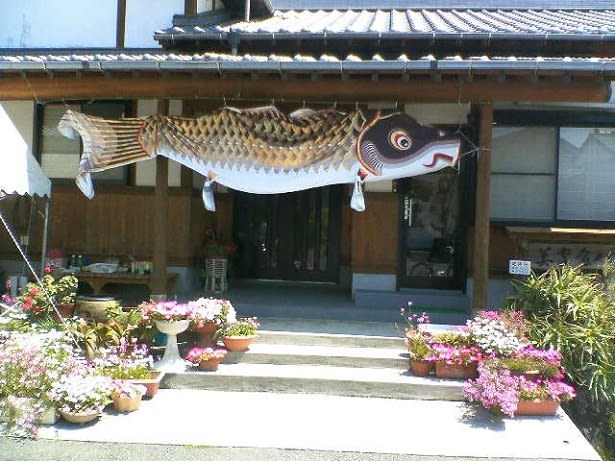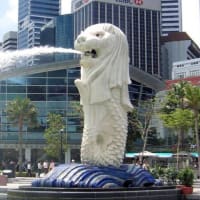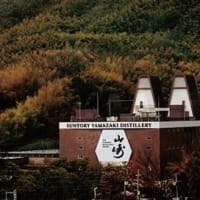
(2)Japan must face the past
(WPST投稿記事・2013年1月25日)
Japan must face the past
Japanese Prime Minister Shinzo Abe has said he plans to revise — likely backtracking from — a 1993 statement that acknowledged government complicity in Japan’s World War II sex slave program. Around the world, advocates of truth-telling and atonement were outraged; at home, Abe’s conservative allies celebrated. Ironically, those conservatives should be among the most chagrined.
Japan’s conservatives increasingly worry about the danger brewing in East Asia from a rising China. But their denials and equivocations about the past undermine the political and military support that Japan will need to manage the troubles ahead.
日本は過去を直視すべきだ
日本の安倍晋三首相は、第二次世界大戦中の性奴隷計画への日本政府の組織的関与【government complicity】を認めた1993年の声明【河野談話】を改正する意向を--おそらく声明の撤回になりそうな気配なのだけれども--表明した。この表明を受けて世界中で真実と贖罪を求める人々の怒声が聞かれた。一方、日本国内では安倍首相を支持する保守派はこの表明に対して賛美の喝采を叫んでいる。皮肉なことに、しかし、これら日本の保守派こそ近い将来、最も痛切に切歯扼腕する人々かもしれない。
日本の保守派は、支那の興隆にともない東アジアで醸成されつつある危険を危惧するようになった。しかるに、過去を否定する、もしくは、過去を直視せず曖昧なままにしておこうとする彼等の言動は、支那を震源とする諸問題に対処する上で、将来日本が必要とする他国からの政治的と軍事的の支援や支持に関して、その支援や支持の基盤を掘り崩しかねないものなのだから。

Japanese conservatives value love of country as an important part of national strength. They argue that focusing on past misdeeds erodes domestic patriotism, so they prefer to emphasize positive aspects of Japan’s history. Conservative politicians and intellectuals have sought to blur distinctions between the World War II combatants; they argue that Japan, in its expansionism and human rights violations, behaved just as other countries did and so should not be singled out for criticism and demands for apologies.
But whether or not the “everyone was doing it” argument holds true, such denials are counterproductive: A country that has been a model global citizen for decades, should draw the clearest possible distinction between good behavior and bad. Instead, Japan’s denials keep its World War II-era crimes in the spotlight, obscuring not only the huge distinctions between the Japan of old and the Japan of today but also the distinctions between it and its contemporary rivals.・・・
日本の保守派は、国を愛する心情と態度(love of country)こそ国の強さを左右する重要な要素と考え、それに価値を置いている。過去の日本の悪行を正面から取り上げれば愛国心が浸食されかねないと危惧して、よって、日本の歴史の中の肯定的な側面をもっぱら強調しようとする。日本の保守派の政治家や識者は、第二次世界大戦を戦った諸国の将兵と日本のそれらとの区別を意図的に曖昧にしようとしてきた。つまり、領土拡大政策にせよ人権侵害にせよ、日本がやったことも他の国がやったこととなんら変わらない、と。ならば、日本だけが批判の集中砲火を受け、日本だけが謝罪を要求される筋合いはさらさらない、と。日本の保守派の政治家や識者はそう主張する。
「どの国も同じことをした」という主張が正しいにせよ間違いにせよ、過去の否定は非生産的である。いやしくも、何十年もの間、世界の中でも模範的な主権国家であり続けてきた国ならば、善い行為と悪い行為の線引きは可能な限り平明・明瞭にすべきなのだ。加之、日本が過去を否定し続ける限り、第二次世界大戦中の日本の犯罪行為に世界の関心が注がれ続けることになる。そうなれば、なにより、戦前と戦後の日本との間のとてつもなく大きな違いが覆い隠されるだけではなく、日本が現在せめぎ合っている諸国と日本の違いもまた見えにくくなる。(中略)

Tokyo’s denials also undermine conservative national security goals by diverting global attention from the ongoing misdeeds of regional rivals. North Korea’s reprehensible policies are well known: It imprisons, starves, tortures and kills its people; it commits violence against its neighbors and traffics in anything — nuclear technology, women, drugs and counterfeit goods — to make a buck. Yet, incredibly, Japanese conservatives have created a situation in which people around the world can’t help but nod as the planet’s most murderous government lambastes Tokyo for bad behavior.
Japan’s denials are perhaps most self-defeating regarding its emerging competition with China: Today’s Chinese Communist Party abuses dissidents, restricts political rights and violently represses secessionist movements. As China has grown more powerful, Beijing’s foreign policy has grown more assertive; this is particularly clear in territorial disputes with neighbors. Last autumn, in the midst of a crisis over a regional island chain — known to the Japanese as the Senkaku Islands and to the Chinese as the Diaoyu — rioters in China burned and looted Japanese businesses and even waved signs advocating the genocide of Japanese. Such behavior would be shocking anywhere but is particularly disturbing in a rising power.
(to be continued)
日本政府による過去の否定は、東アジア地域で日本とせめぎ合っている諸国が繰り広げている現在進行形の悪行から世界の目をそらさせるものだ。よって、過去の否定は保守派の掲げる国家安全保障上の目的達成をも難しくする。北朝鮮の非難されて当然の諸政策は世界周知のことだ。国民を収監し、餓死させ、拷問し、殺害している北朝鮮。近隣諸国の国民に対して暴力をふるい、あるいは、ドルのためとあらば、核兵器開発技術から女性から、薬物から偽ブランド品に至るまでありとあらゆるものを密売買している北朝鮮。しかし、信じられないことながら、日本の保守派はいまだにそんな北朝鮮に対して自国が不利になる状況を大真面目に作り続けている。すなわち、地球上で最も非道かつ残忍な北朝鮮の政府が日本の過去の悪行をあげつらい日本政府を激しく非難しても、その際、世界中の人々がそんな北朝鮮の非難に対して頷くしかない状況をである。
過去を否定する日本の行動は大なり小なり自滅的なものだけれど、その行動が日本に及ぼす実害の大きさは支那との競争に際して最大規模となろう。支那との競争の激しさが日本にとっていよいよ冗談ではなくなっていることは言うまでもない。実際、現下の支那共産党は国内の反体制派を蹂躙しており、政治活動の自由を制限し、あるいは、支那からの分離独立運動に対しては暴力を用いた鎮圧でもって応えている。その国力がより強大になるにしたがい、支那の対外政策はより唯我独尊の度を増してきているではないか。蓋し、漸次自己中の度を高めている支那という事態は近隣諸国と支那との間の領土を巡る紛争において赤裸々である。昨秋、日本と支那がせめぎ合っている東アジアのある島礁--日本では尖閣諸島、支那では釣魚【島およびその付属島嶼】と呼ばれている島礁--を巡って両国の緊張が最高潮に達した頃、支那では暴徒が日本資本の企業・商店を襲い、放火と略奪を繰り広げた。更に、あろうことか、支那の暴徒は日本人の大量殺戮を呼びかけるプラカードを振りかざしさえした。かくのごとき暴挙は世界のどこで起きたとしても衝撃的だっただろう。けれどもそれが世界の一大強国になりつつある国で起きたのだから世界に与えた衝撃は一入だった。(本投稿記事続く)

<続く>



















